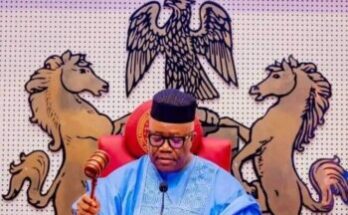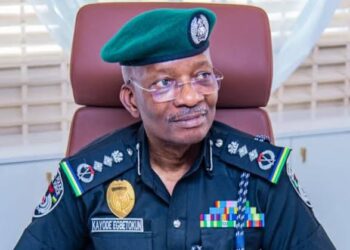By Bukola Abu Ajibade
There can hardly be a more critical or controversial question about the immediate future of Nigeria now than who is likely to become its next president. Indeed, the race for the 2015 presidency began in 2011 when President Goodluck Jonathan of the Peoples Democratic Party (PDP) supposedly trounced the trio of General Muhammad Buhari of the Congress for Progressive Change (CPC), Mallam Ibrahim Shekarau of the All Nigeria People’s Party (ANPP) and Mallam Nuhu Ribadu of the Action Congress of Nigeria (ACN) at the April polls. Going by their terrifying body-language, all these veterans seem set to take another shot which they should not.
President Jonathan
The situation on ground must discourage if not disqualify him from contesting the upcoming presidential election. Apart from the constitutional lacuna of whether anyone can be sworn-in thrice or serve for ten years as president, the betrayal of the rotational formula in the constitution of the ruling party and the agreement Jonathan reached with PDP governors in 2011 to go for election just once; there is simply too much dissatisfaction across the board of the Nigerian federation.
Insecurity tops the list of woes bedeviling the country coupled with over 70 per cent poverty rates, gross infrastructure deficit, the life of Nigerians under Jonathan’s watch can hardly be nastier, shorter or more brutish.
General Muhammad Buhari
A perfect presidential prospect – in a different plane. The People’s General indeed has popular appeals in terms of being ascetic (if not austere), accountable, honest and humble but clearly lacks enough accommodation, capacity, courage and tact to successfully win a presidential campaign. Ironically, he is almost as divisive as Jonathan.
Buhari’s main baggage is his close cronies whose selfishness, insensitivity and injustice is rarely questioned and never penalized by the leader. Only the worst political managers can succeed in reducing an iconic personality with Buhari’s experience and track-record into a sub-regional hero whose largest following hardly ever register much less vote in elections and are almost all confined to one geopolitical zone.
Mallam Ibrahim Shekarau The defection of this former Governor of Kano State from the All Progressives Congress (APC) to the PDP clearly left the vast majority of Kanawa and his other admirers and supporters nationwide astounded. The reactions of the people and even his fellow politicians suggest that he could not have made a more unpropitious mistake in his political career. Feedback from his former allies and pundits are that he has lost political relevance in Kano or any other state at least for now.
Who the cap fits?
The unprecedented merger in July 2013 of the three leading opposition parties – ACN, ANPP and CPC— into the new APC is historic since rival political platforms in Nigeria had never gone beyond electoral alliances. However, sluggish mobilization and organization by the mega party cast some doubt on whether it will be the game changer of Elections 2015 that many hope. On the other hand, the PDP that has been in power since the return of democracy in 1999 seems to have exhausted its tricks and is currently in decline and on the defensive for the first time in its life. Sharp divisions in its ranks especially exacerbated by dispute over its rotational formula suggest the party may yet implode.
There is hardly a better scenario for a total democratic regime change than the 2015 general elections. At this point, Nigerians have a clear opportunity for electing a president that would make a marked difference. Nigeria needs a new and better President, preferably on the platform of a different party to further deepen its democracy. If the PDP fields Jonathan and somehow manages to recapture power, it would be with a seriously reduced majority. This will produce its own crises because bickering would paralyze governance and plunge the country into deeper crises. Patriotic politicians in all parties have their job cut out for them: promote the best and brightest.
From North to South Nigeria is blessed with able presidential prospects across the two major parties. Governors Sule Lamido of Jigawa State, Rabiu Musa Kwankwaso of Kano State, Raji Fashola of Lagos State, Adams Oshiomhole of Edo State, Rotimi Amaechi of Rivers State, Alhaji Atiku Abubakar, Dr. Usman Bugaje former member House of Representatives, G34 member and founding National Secretary of the defunct ACN and Hon. Aminu Waziri Tambuwal easily come to mind. This is on simple account of their inclusiveness, relative integrity and output or performance.
Since no short article can discuss all the potential presidents, let us focus on Governor Sule Lamido, the most experienced and mature of the lot. He is one of the few surviving politicians who played the game in the First, Second, Third and Fourth Republics and remains relevant today. His leadership of the G7 group of governors who staged a historic walkout at the last PDP convention that culminated in the emergence of the New PDP and the gale of defections from the party was probably on account of this.
Good governance also shows in the quantity and quality of infrastructure development by the Lamido administration. The governor’s greatest achievement lies in putting education and agriculture in their right places and restoring confidence in governance by returning dignity to the good people of Jigawa State.
Ajibade wrote from No. 4A Juma Street, Jos.



